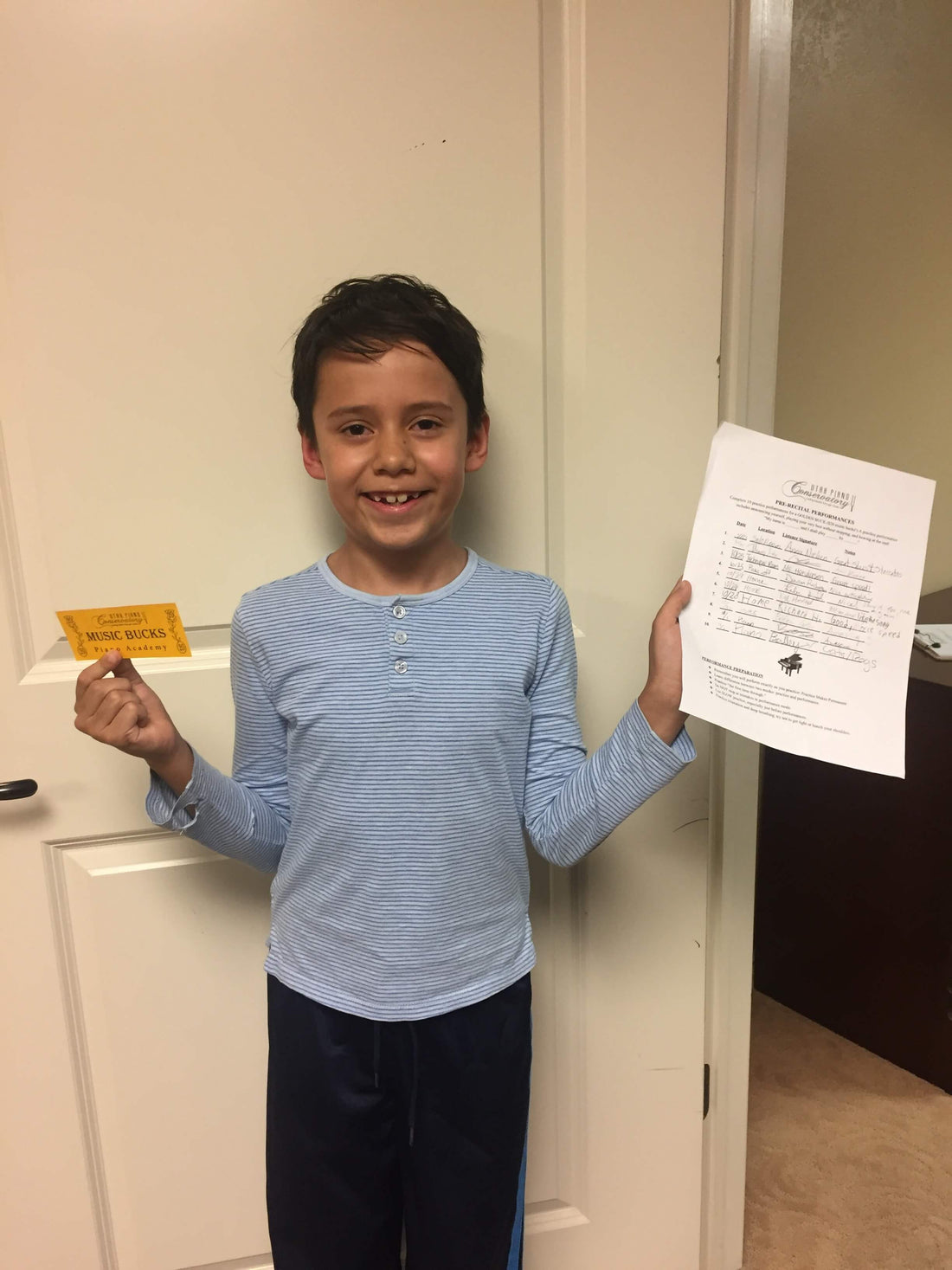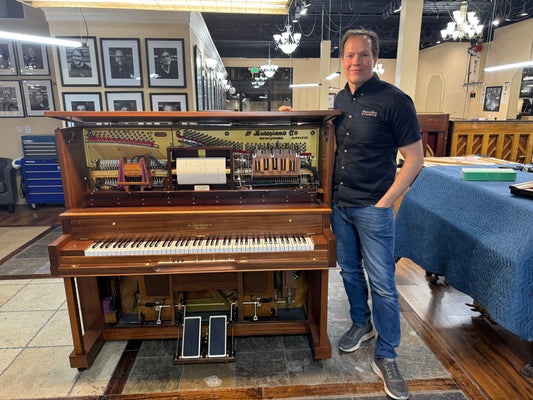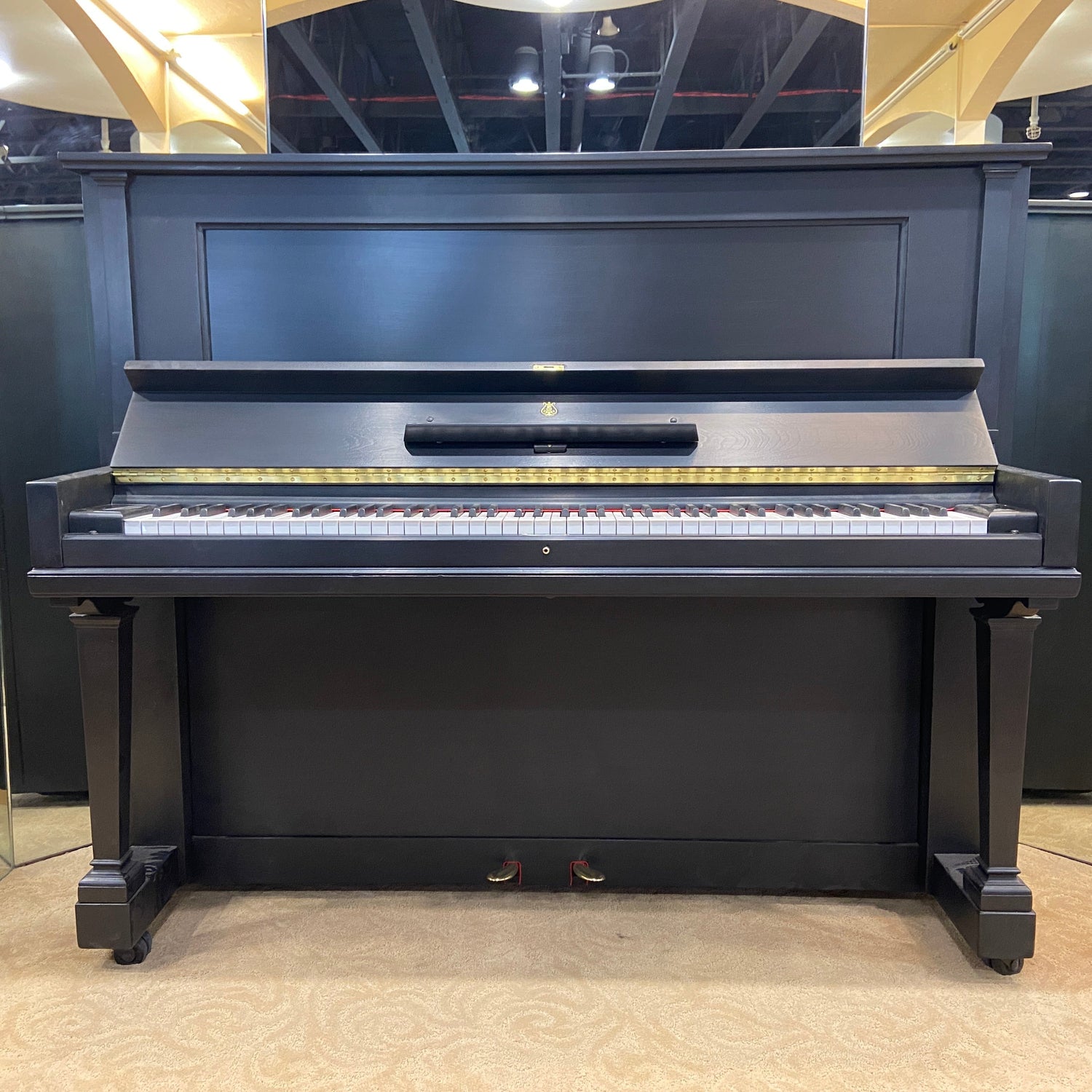
Pre-Recital Performances
Karmel LarsonShare
Performing in front of an audience at a recital can be a scary situation for some students. It can be nerve-wracking to know others are listening to your performance. Performing can make the performer hyperaware of everything they are doing, which can often put a performer in a very different state of mind from the one in which they usually practice. The truth is that performing is a skill that takes consistent practice, just like any other aspect of music-making. Unfortunately, as teachers and students, we sometimes forget this and just expect our students to play at a recital the same way they played in a lesson or in their practicing. This is often not the case. Performing takes a whole different skill set. Accordingly, these skills must be taught and practiced. At the Utah Piano Conservatory, we help our students learn to perform by giving them lots of different opportunities to practice performing.
For example, about two weeks before a recital, I will give my students our Pre-Recital Performances sheet. This sheet encourages them to practice performing their recital piece ten different times. There is a place on the sheet for the listener to write the date, the location, notes from the performance, and their signature. If a student completes the sheet before the recital, they are awarded a Golden Music Buck, which is worth twenty normal music bucks. In order for a performance to count on the sheet, students must announce themselves, which includes stating their name and the title of their piece; they must play their best without any stopping; and they must bow at the end. This is exactly how a performance works at our recitals, so it is excellent preparation for the actual thing.
Why ten pre-recital performances? We've found that doing ten practice performances greatly increases confidence and gives the necessary experience for a student to play well at a recital. By doing this many performances, a student is normally comfortable enough with the piece and with playing it in front of others that they are able to set aside their fears and focus on playing their piece musically and expressively without worrying about making mistakes or having memory slips. While working on my master's degree at BYU, one of my professors said, "I feel like everyone deserves to have about five bad performances of each of their pieces." What he meant by this was that the first few times you perform any piece, it is likely to be unstable and riddled with errors. What he also meant was that in knowing this, everyone ought to get out those bad performances by practicing performing before the actual recital or competition. Our students do this by completing ten performances for family, neighbors, and friends.
[caption id="attachment_4213" align="aligncenter" width="768"] Here is one of our students proudly showing off his completed performance sheet and the Golden Music Buck he earned for doing so.[/caption]











